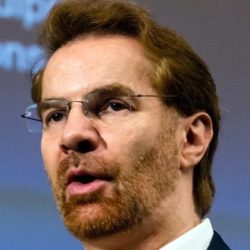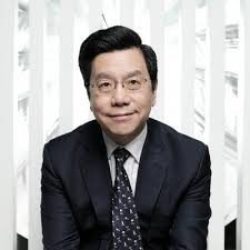Whether we like it or not, the work of future will look very different than today. More jobs than ever can now be performed by machines, thanks to rapid advancement in automation and artificial intelligence; digitalization is transforming what we produce, consume, and, as a result, the labor market; at the same time, our understanding of what work means and how it should be valued remains outdated. How will work be different in the future and how can societies prepare?
In the fifth episode of the Future of Work webinar series by the Institute for New Economic Thinking, Erik Bryjolfsson of Stanford University, Nancy Folbre of University of Massachusetts Amherst, and Kai-Fu Lee of Sinovation Ventures were joined by journalist Steven Clemons of The Hill, in a discussion that examines what work of the future may look like.
The discussion on the work of future is intricately linked to one on the economy in transition. As digitalization goes from affecting only a handful of industries to forming the backbone of the economy, major shifts are happening to the production processes and the role of data and networks is brought to the forefront. According to Erik Brynjolfsson, the economics of bits is fundamentally different from the economics of atoms as “free, perfect, and instant” goods are churned out in the digital economy, and the disruptive potential of the digital revolution is well poised to exceed that of the industrial revolution. While we may not see the end of human work anytime soon, reallocation of resources and talents is already underway. All of this will have consequences on inequality of income and opportunities in societies, but the norms and institutions that we usually rely on at times of rapid changes are evolving a lot more slowly than the technologies themselves.
While the dominant narrative seems to suggest that machines are increasingly eating our lunch and humans will be placed at a perpetual disadvantage, there are areas in the economy that humans are uniquely positioned. Kai-Fu Lee shares such an enlightened view of what AI could mean for humanity. While it is almost certain that routine and repetitive jobs such as tele-salespeople and assembly line workers will eventually be replaced by AI software, many human jobs – those that require creativity and human empathy – could either benefit from more integration with machines or be made more abundant or valuable due to their increased importance in the digital economy. Educator, doctors, health care providers are all likely to see their jobs change or grow, rather than disappear in the future, and there are ample things that humans can uniquely offer to each other. It bears emphasizing that, like many other things, AI is ultimately a tool invented by humans. Our collective choice on how to make use of it will shape what kind of future we will end up having.
Just because some jobs are important doesn’t necessarily mean those performing them are compensated well or more people are drawn to them, and much of the reason has to do with how economists have viewed and measured value traditionally. As Nancy Folbre pointed out, spanning healthcare, education, and social work, the care sector employs some 30 percent of the entire labor force, while unpaid work accounts for another 50 percent of total work activities. The importance of these jobs was laid bare in this pandemic, as remote workers juggle between work tasks and caring for family members. Due to our inability to capture the benefit of, and therefore unwillingness to pay for these socially productive activities, they have long been undervalued inside the market economy. It certainly doesn’t help that it was women and other underserved groups that tend to perform them. To shift value recognition associated with these activities, it would take a change in our economic thinking and policy paradigm, which is what stands between us and a future of increased and shared prosperity.
Human work is undergoing unprecedent transformation across societies, and nations are employing different strategies to cope with these changes. In the future episode of this webinar series, we will be comparing what countries are doing to prepare their citizens for the future of work.



